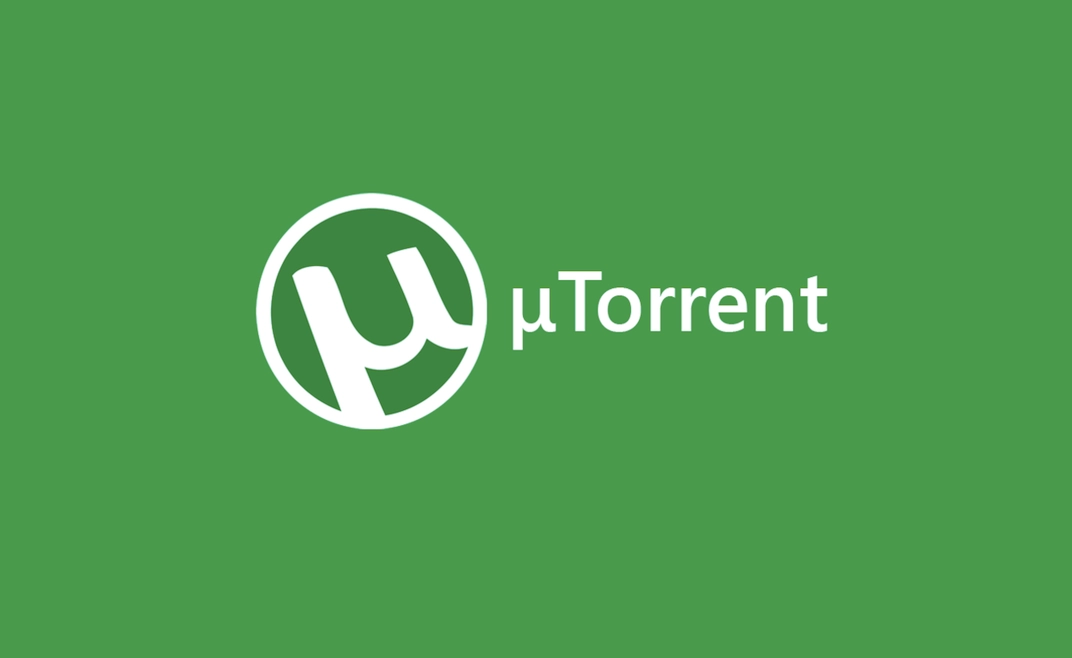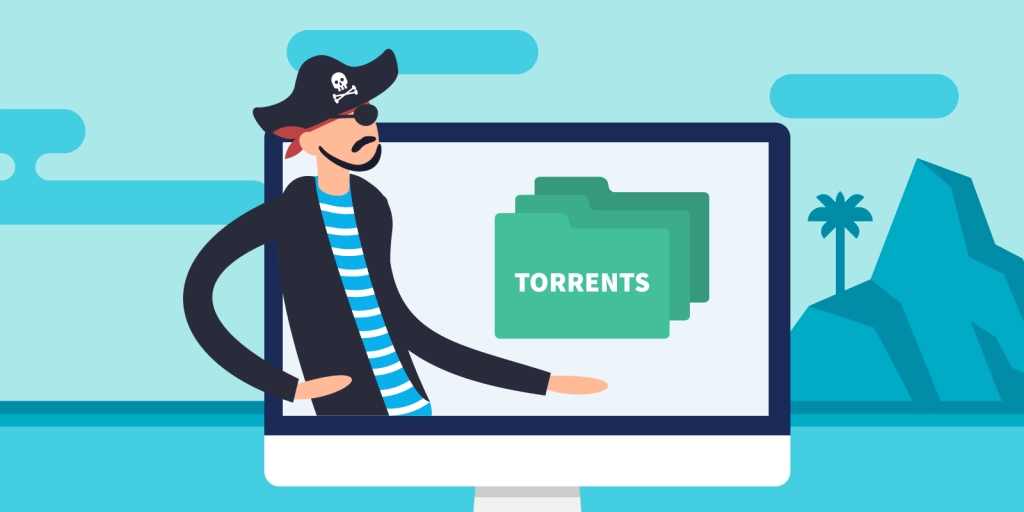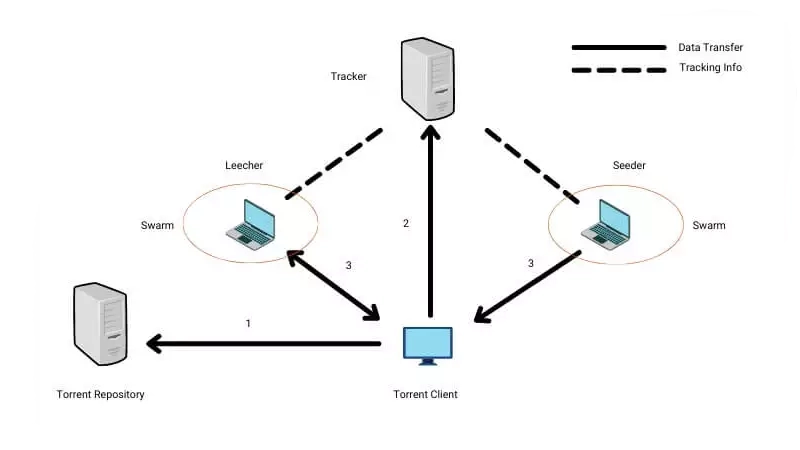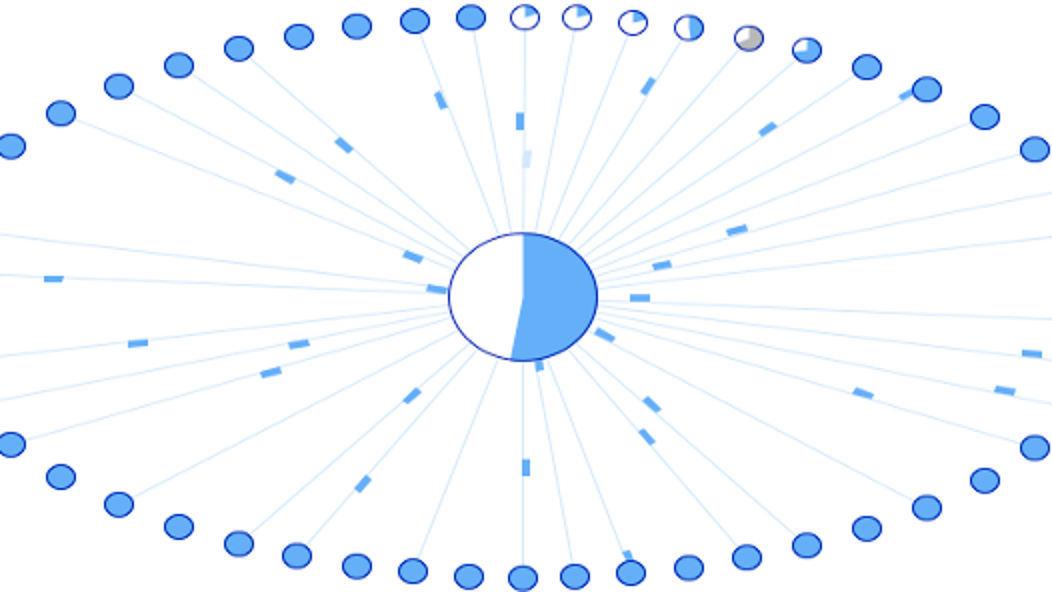What Are Torrents & How Do They Work?
Torrents are a method of distributing files over the Internet. They work on the BitTorrent protocol to facilitate file sharing (P2P). This case is more suitable for people who need copyleft (opposite to copyright law) because it affects how a person downloads and receives a file. After all, torrent does not have a limit for downloading and sharing. If you want to share large files and you don’t have enough capacity, torrent is your solution. Stay with us until the end of the article for the torrenting process.
But why torrent?
The question is, what is the problem with sharing files in the traditional and old way? Torrent-based file sharing has many advantages over traditional file sharing. To share via torrent, you don’t need a lot of equipment and expensive servers to send files to different people simultaneously, and networks with low (slow) bandwidth can easily access large sets of data.

The most common way to use a torrent is through a file identified by a . TORRENT extension. These files provide instructions on how to share specific data with others.
Can torrents be dangerous?
Before we learn more about how torrents work, it’s essential to know that despite the freedoms they give users, they also carry more risk than other forms of file sharing. Using torrents or creating torrents is not an inherently dangerous practice. Still, it is essential to remember that there are claims to the contrary unless you have a trusted source to use or create, accidentally downloading files that are legally licensed. Not uploading or downloading files infected with malware with torrent extensions is very easy and harmful.
If you are interested in using torrents to share your files or download large files from others, be sure to use reputable antivirus and only download torrents from trusted users.
Checking the security and legality of torrents in simple language
Is torrenting legal or illegal? Torrenting itself is not illegal, but downloading copyrighted material is prohibited. At first glance, it is not always apparent which content is legal for torrenting and which is illegal!
Your Internet Service Provider (ISP) and the copyright trolls who monitor the BitTorrent network can sometimes catch you torrenting illegally and get you in trouble. This can range from a warning letter from trolls or slowing down (torrenting) your internet connection to more robust measures. Although the latter is increasingly rare, you’ll usually get warnings.

Digital privacy-conscious torrents use VPN services, or Virtual Private Networks, to hide their Internet activity from their ISP. Despite the wide variety of VPN apps, some are better for torrents than others. If you want to keep your ISP from tracking your activities, choose a VPN that meets the following three criteria:
- It does not support a log of your actions.
- Not located in a country where the legal system can monitor your torrenting in any way.
- It’s fast enough that it doesn’t slow down total downloads.
If you are a torrent, you will realize that the above three conditions are the most apparent things anyone choosing a flood should know. But how to do torrent? Stay with us.
How to torrent safely?
Keeping your online activity safe and private is relatively simple for torrenting. While a VPN keeps your torrenting activity private, you may still be exposed to malware from some public torrenting sites. To torrent privately with a VPN, follow these five steps to learn how to torrent safely:
- Download and install a VPN that meets the criteria listed above. Usually, buying a NordVPN account is an optimal recommendation that you should consider important.
- Enable your VPN kill switch if present.
- Connect to a VPN server, preferably in a P2P-friendly country
- Once connected, open your torrent client and start downloading.
- VPN now encrypts your online activity.
Is there a better way to torrent without VPN? Can’t we torrent if we can’t buy the desired VPN? The answer is negative. There are ways to torrent safely without a VPN.
Torrent without VPN
Torrenting without a VPN means that your Internet Service Provider (ISP) can track your online activity, including the sites you visit and the content you view. In some countries, including the United States, ISPs can share this information with third parties, including intellectual property owners. A VPN keeps your online activity private from your ISP. But not necessarily using a VPN does not prevent you from torrenting, and you can continue your training in a public space.
Is uTorrent safe?
uTorrent is the official torrent client from the makers of the BitTorrent protocol. Unlike other platforms, uTorrent is proprietary software, not open source, operated by a legal US company. Like BitTorrent, uTorrent software itself is legal. However, it can also be used for digital piracy, but if you’re using torrenting for something legitimate, you don’t have to worry about this. Official uTorrent is malware-free and can be used securely and privately with a VPN. However, like BitTorrent, uTorrent does not prevent users from downloading malicious files that can infect their devices.

The BitTorrent protocol became the world’s most popular peer-to-peer file-sharing medium after overtaking competing centralized services such as Napster and Limewire. Unlike other services, torrent is almost entirely decentralized for users who want to search and download torrent files and magnet links.
Is BitTorrent safe and legal?
As mentioned, the BitTorrent protocol itself is not illegal or unsafe. This service is just a means to share files, and many legal torrent services exist. However, the most popular torrent trackers, such as ThePirateBay and KickassTorrents, are so-called “gray,” meaning that there is no protocol to make them illegal, nor are they utterly legal because they allow users to access copyrighted content for free. Sharing and downloading copyrighted content via BitTorrent or other methods is unlawful in many countries and can be unsafe as sites such as KickassTorrents host dangerous malware. Like the BitTorrent protocol, these services are a means to an end. Whether your goal is wrong or you have a proper and reasonable plan. The leading trackers of these services are monitored and inspected by different people to ensure the security of their content.
Misuse of this platform will eventually affect the users, the millions of people who download or share files, and those who download or upload movies, games, software, music, e-books, and more. Users connected to a tracker are called peers and are divided into two categories:
A category called LEECH uses a torrent file or a magnet link to download the file from other network users who already own the file. These users who already have the file are called seeds. When a sponge finishes downloading a file (or even just part of a file), it becomes a seed because it now owns that file. And allows other licks to download the file from his computer. Generally, a sponge becomes a sid, which may become a sponge when receiving a file it does not own.
Many people think that torrenting is copyright infringement. It should be noted that this company does not endorse or encourage any violation of copyright laws or restrictions. Legally, seeding and leeching of copyrighted material fall under different criminal categories. Treat file downloading like buying anything illegal: buying illegal stuff for personal use is a crime, but only partially because you hurt yourself.
But selling those items to others is a much more severe crime because you have harmed yourself, others, and the original producer. Regarding copyright law, this happens when you download the Avengers movie before it’s fully released or use a free download instead of buying the original. Although torrents can be used to download illegally, this is not something the law allows, especially if you live in a country where P2P is considered a crime.
What happens if you get caught torrenting?
Yes! If you are doing illegal things, you can easily be tracked. Legal prosecution of torrent users has happened sporadically in the past. The chances of you going to court or being forced to pay damages and restitution are slim, but the criminal penalties can be huge (depending on your country). The number of times copyright holders sued torrents for copyright infringement peaked in the late 2000s. In those years, a campaign against flood was also formed.
How to share in Tonet:
Here’s an example of how traditional file sharing over the HTTP protocol works:
- Open a new page in any browser.
- Click on the download link to start the download process.
- Save the file to your computer.
The file you downloaded was stored on a server, probably a state-of-the-art server with lots of disk space and other features that can be purchased from public servers designed to serve thousands or millions of people at a time. This file exists only on that one server, and anyone with access can download it.
Torrents work a little differently. While your web browser connects to websites using the HTTP protocol, torrents use BitTorrent, so you need a program that can communicate via BitTorrent:
- Open a torrent program.
- Open the TORRENT file to start the download process.
- Save the file to your computer.
In this scenario, the data you download via torrent may exist on hundreds of servers simultaneously, but those servers are almost always a standard PC at home, just like you. Advanced hardware is not required, and anyone can participate in this file exchange. Anyone downloading even part of a file can now be identified as a torrenting server.
Suppose you are interested in sharing files from your computer over the Internet. In that case, the traditional way is to upload the data to a central location (any file-sharing method (such as a server) will do), then recipients can download it. Do In torrents, sharing is similar to saving, as explained above: instead of downloading a torrent that someone else made and has instructions for saving their files, you share the flood you create so that recipients have the necessary paths to download from you. to be
How do torrents work?
All the issues mentioned above may sound a bit confusing, especially if you don’t have any IT background, but the main idea is straightforward. As you read above, torrents are a method of downloading files or sharing. In torrenting, the files are stored on more than one server, and you get the file from someone, or someone who tries to download a file that you own. Simply! A way to share and connect globally.
For example, imagine I’ve created a torrent to share a program I’ve built. I enable torrent and share the file online. Dozens of people are downloading it, and you are one of them. Your torrent program will choose which file to grab depending on who is currently sharing the file and which servers have the part of the file you need. In a traditional file share that uses a file server, sharing a 200MB app with 1,000 people will quickly use up all of my upload bandwidth, especially if they all request the file simultaneously.
Torrents solve this problem by allowing clients to download asynchronously, where they only download a bit of data from me, a bit from another user, and so on, until the download is finished. The torrent distributes the download between all servers. Once more than one person has downloaded the entire file, the original sharer can stop distributing it without affecting anyone else. Due to BitTorrent’s decentralized P2P base, this file will be available to other torrent users. Even if someone other than you has it, you cannot stop it from spreading. A double-edged sword that can be both beneficial and harmful.
Torrent distribution process
Once a torrent is created, the creator can share it in two ways: a torrent file or a hash of the flood, often called a magnet link. Magnet links are a simple way to identify torrents on the BitTorrent network without having to deal with the torrent file itself.
But which option is better? Usually, the second method, the torrent hash, works better than the torrent file. An empty torrent file won’t help you much, so it makes more sense to use torrent hash or magnetic link.
Common terms in the torrent world
Here are some useful terms to know when dealing with torrents:
SEED: Seeding a torrent means sharing it. The number of torrent seeds means the number of people who share or own the complete file. Zero seed means no one can download the entire file and no one currently owns it.
Peer: Peer is someone who downloads the file from a seder, but does not have the complete file yet.
Leech: Leeches download the file more than they upload it (unlike seeds). Unlike a seder, a leecher may not upload anything after the file is completely downloaded.
Swarm: A group of people who download and share a torrent.
Tracker: A server that tracks all users connected to the torrent and helps them find each other.
Client: The program or web service used by a torrent file or magnet link to understand how to download or upload files.
How can I download torrents without my ISP knowing?
Using torrents is a legal and efficient way to share large files. While ISPs don’t prohibit you from using torrenting, they may sometimes throttle BitTorrent traffic, resulting in slower download speeds. If you don’t want your ISP to know you’re downloading torrents, you should use a virtual private network (VPN) that protects your privacy.
How do I download torrents with a VPN?
To download torrents safely with a VPN, look for a suitable VPN such as Nord VPN, but while installing that VPN, be careful to use the most secure settings available to prevent theft or abuse while torrenting. Then, choose a torrent-friendly server with safe and legal content, connect to your VPN, and establish a secure connection.
How do I stream torrents?
When you stream a torrent, for example, a movie file, you can watch the movie without waiting for the entire file to download. To do this, you need a dedicated torrent streaming site or tool. Some of these platforms include WebTorrent Desktop, Webtor.io, and Seedr. However, before streaming any torrent, make sure the content is free and legal to access, such as a movie in the public domain. Avoid downloading illegal content.
How to increase the download speed of the file in torrent?
There are a few things you can do to download torrent files faster. First, check how many “seeders” there are for the torrent file. Seders are people who continue to share a torrent after downloading it. The more seders, the faster your torrent will download. You can also avoid Wi-Fi and connect to another Internet source, download files one at a time, bypass your firewall, or purchase a faster plan from your modem or SIM card Internet provider because the speed boost The Internet is equal to the increase in torrent download speed.











